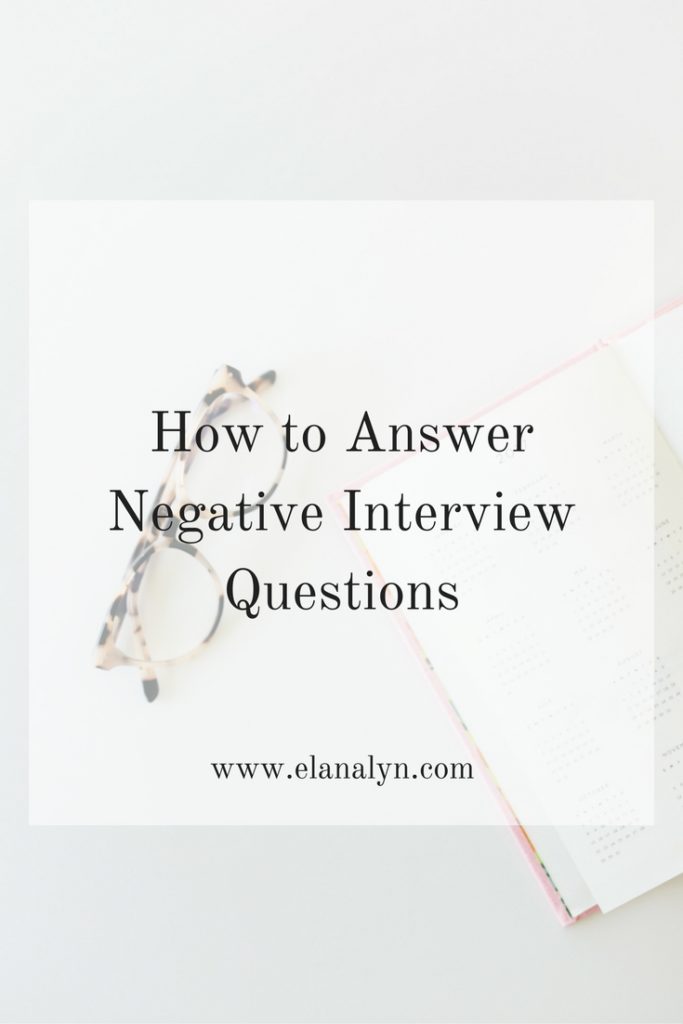Let’s see if this scenario sounds familiar: You’re in the interview hot seat, but so far, you’re pretty sure you’re nailing it—until the hiring manager throws you a curveball. The dreaded “What’s your biggest weakness?” comes up. Or better yet, “Why are you leaving your current job?” We know you’re thinking of your favorite four-letter word. “Negative” interview questions—the ones that seemingly want you to discuss a personal weakness—are in fact designed to reveal your interpersonal skills and self-awareness. Employers want to hire someone who can acknowledge shortcomings, work well with team members and commit to personal and professional development.
“When interviewers ask negative questions,” says Alyssa Gelbard, founder of New York City-based career consulting and personal branding firm Resume Strategists, “they want to know the actual answers to the questions, how you handle something challenging, as well as your level of self-awareness and honesty.”
She adds that negative interview questions often highlight an insecurity or strong emotion because the interviewer wants to test your confidence as well as whether you take responsibility or blame someone else. We asked job search and career experts to share tips for answering negative interview questions honestly, diplomatically and professionally.

Be Honest:
Employers are not looking for someone who has never made mistakes. They realize that nobody is perfect. Everyone has strengths, weaknesses, and times they’ve messed up. Employers are looking for candidates who demonstrate self-awareness. “Be honest. You want an employer to hire you as your most authentic self, admitting to your flaws and failures makes you more human and more relatable,” recommends Eileen Carey, the CEO of Glassbreakers, an enterprise software solution for scaling inclusion based in San Francisco. When you explain a mistake, choose one that wasn’t insurmountable. Discuss how you responsibly responded to the mistake and what lessons you learned for the future.
Show Improvement:
Demonstrate that you acknowledge your weaknesses and are focused on personal and professional development. “When asked about your weakness, share something genuine that you’ve worked on improving,” urges Jamie Petkanics, founder of the New York City-based job search consultancy, The Prepary. Reveal how you are attempting to correct your weakness. If public speaking is difficult for you, explain that you are taking public speaking classes and leading meetings and workshops at work.
Choose a genuine weakness, but not one that is essential for the job you’re interviewing for. “For example, public speaking is probably a fine area of weakness for an accountant but not for someone in sales,” Petkanics says.
Be Diplomatic:
When you answer questions about your colleagues, employers, and working environment, be diplomatic and professional. You will be working with difficult coworkers or facing conflicts and challenges in every office environment so the key is to show that you are able to act professionally.
Stay positive and don’t gossip. Your future employer will value your loyalty and maturity. “The best answers to ‘negative’ questions are genuine, but also well-curated and carefully phrased. Share some version of the truth but keep things really diplomatic,” mentions Petkanics. If you are explaining a conflict at work, choose one where it’s evident that you managed the problem and resolved the issue.
Focus on the Future:
“Whether you need a more supportive manager or want to pursue work in a different industry, pointing to your need for growth and development shows that you are self-aware, purposeful in your decisions, and focused on getting yourself where you want to be professionally,” says Tallia Deljou, president of Mavenly + Co., a New Orleans-based resource for millennial women.
Similarly, Petkanics mentions focusing on what you’re hoping to gain in the future instead of what you’re lacking in your current role. If you want to leave your company because there isn’t room for growth and promotion, rephrase it as: “I’m looking for a company where I can prove myself in my current role but then go on to grow within the organization.”
If you use these tips to respond to “negative” interview questions, you’ll show your interpersonal skills, professionalism, and commitment to growth. And what prospective employer wouldn’t want that? (Trick question.)































